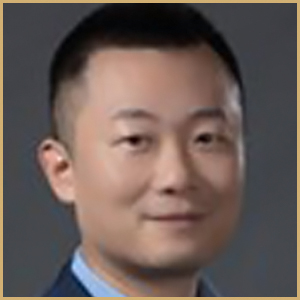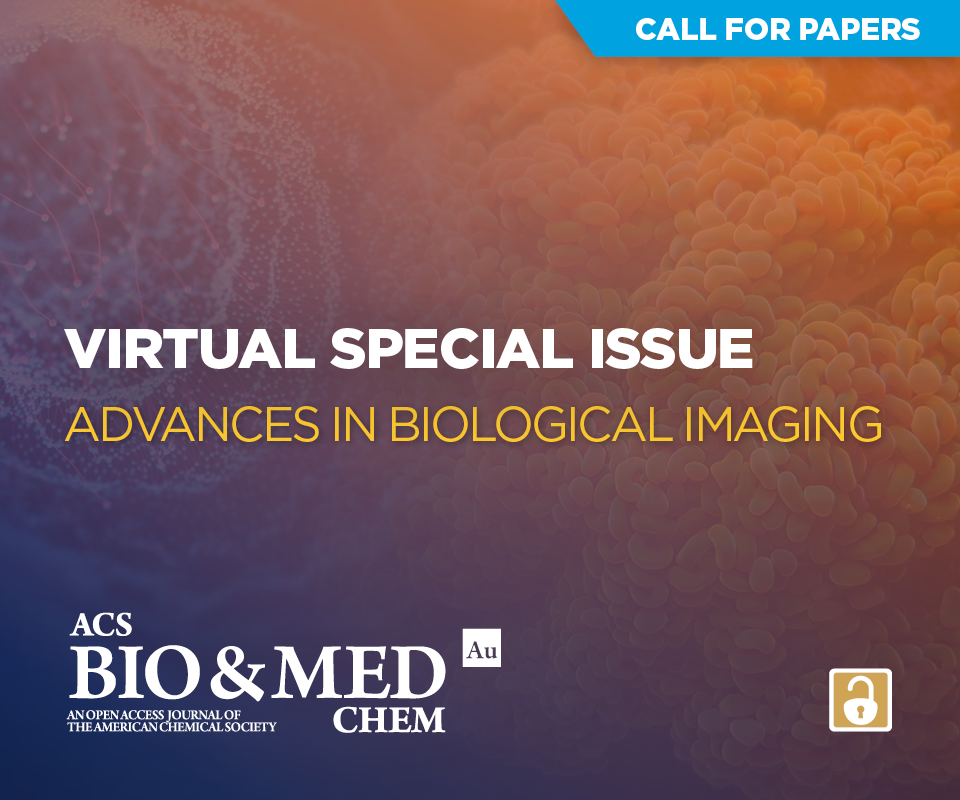New imaging techniques applied to biological processes have revolutionized our understanding of cellular and sub-cellular processes. A wide range of modalities, from ultrasound and bioluminesence imaging to magnetic resonance imaging, has allowed non-invasive exploration of in vivo and in vitro environments. Incredibly, molecular imaging allows the visualization of metabolic and other pathways inside organisms.
This special issue, Edited by Xin Zhang (Westlake University, China), Stuart Conway (University of Oxford, UK) and Squire Booker (The Pennsylvania State University, USA), will showcase the range and depth of analytical, chemical, and biological methods - and their applications - for probing the process of life at all levels, from subcellular mechanisms through whole organ to full species studies.
The scope of this virtual issue will include analytical, chemical, and chemical biological methods to detect various molecules and processes inside of cells, tissues, or other biological samples. Contents of interest include, but are not limited to:
- new physical/chemical mechanisms for the design of imaging agents,
- sensing metal homeostasis and related topics,
- imaging redox environments and related biology,
- imaging strategies related to fluorescent proteins or luciferase,
- imaging techniques using mass spectrometry,
- developing super-resolution imaging,
- in vivo imaging using bioluminescence or PET agents,
- imaging techniques using Raman or other vibrational spectroscopic approaches,
- imaging specific conformational states of biomolecules (such as proteins and RNAs),
- visualizing post-translational modifications of proteins or post-transcriptional modifications of RNAs
Examples of papers that will feature in this special issue
Yunfei Zuo, Hanchen Shen, Feiyi Sun, Pei Li, Jianwei Sun, Ryan T. K. Kwok, Jacky W. Y. Lam, and Ben Zhong Tang
We welcome the submission of Articles, Letters, Reviews and Perspectives through 31 March 2023. All articles will be peer reviewed prior to acceptance to ensure they fit the scope of the virtual special issue and meet the high scientific publishing standards of ACS Bio & Med Chem Au. If your paper is accepted for inclusion in this special issue, your work will be highlighted as a significant contribution to this growing field of exploration. As ACS Bio & Med Chem Au is a fully open access journal, your paper will be available to anyone, at anytime, anywhere in the world.
Accepted publications will go online as soon as possible after acceptance and be published in the next available issue. In Summer 2023, publications on this topic will be gathered into a virtual special issue on a dedicated webpage, and be promoted as a collection.
If you wish to submit a Review or Perspective, or have any general questions regarding submission to this virtual special issue, please contact Prof. Squire Booker.
Article Publishing Charges apply for publication in this fully open access journal, at a special rate of $2300 if you choose a CC-BY-NC-ND license. For information on other discounts and options for authors please visit the ACS Open Science pages.
How to submit
To submit for this special issue, use the ACS Paragon Plus submission site, log in, choose ACS Bio & Med Chem Au as your journal. Then select your manuscript type, and, under the ‘Special Issue Selection’, choose ‘Advances in Biological Imaging’.
Please see our Author Guidelines for more information on submission requirements. The deadline for submissions is 31 March 2022.
About the Editors

Xin Zhang is Professor of Chemistry and Cell Biology, Westlake Laboratory, Westlake University. Focused on the “Chemistry of Biological Aggregates”, the Zhang lab aspires to develop enabling chemical methodologies and solve transformative biological questions. The Zhang lab combines expertise from synthetic chemistry, biological chemistry, cellular biology and chemical biology to develop chemical tools that quantitatively report on the physicochemical changes of biomolecules during processes of phase separation and aggregation. These results have the potential to correlate the physicochemical properties of biological aggregates to their physiological or pathological functions.

Stuart Conway is a Professor of Organic Chemistry at the University of Oxford, and the E. P. Abraham Cephalosporin Fellow in Organic Chemistry at St Hugh's College, Oxford. Stuart’s research focuses on the development of molecular tools to enable the study of biological systems. This work has been recognised by the award of the 2012 Prize for a Young Medicinal Chemist in Academia by the European Federation for Medicinal Chemistry, and the 2016 Lectureship of the Biological and Medicinal Chemistry Section of the RSC.

Squire J. Booker is an Evan Pugh Professor of Chemistry and of Biochemistry and Molecular Biology at The Pennsylvania State University, and holds the Eberly Family Distinguished Chair in Science. He is also an Investigator of the Howard Hughes Medical Institute. His research is concerned with novel mechanisms and pathways for the biosynthesis of various natural products and cellular metabolites, with a particular focus on enzymes that use S-adenosylmethionine and iron-sulfur clusters to catalyze reactions via radical mechanisms.
© 2025 American Chemical Society, 1155 16th St NW, Washington, DC 20036, USA. View our Privacy Policy



